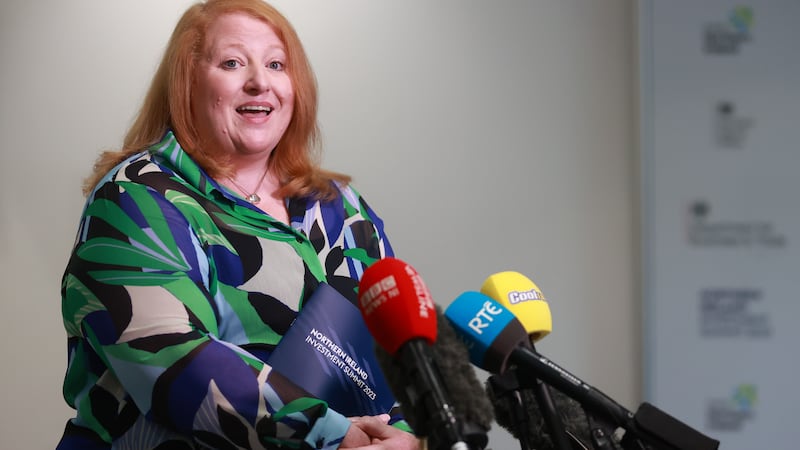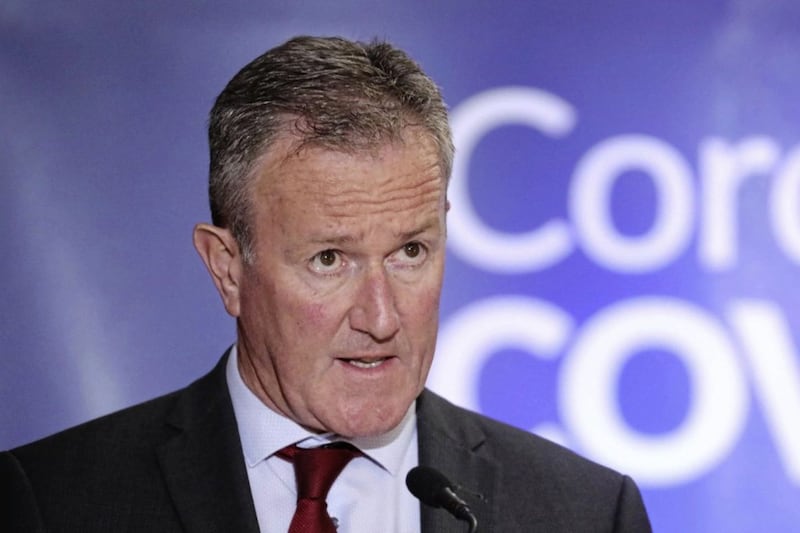STORMONT ministers have reallocated almost £20 million to under-pressure education authorities to help them pay teachers' wages.
The executive has also agreed to provide £1 million to increase support payments for people in Northern Ireland impacted by the infected blood scandal.
Around £1 million will also be spent implementing the recommendations of the Historical Institutional Abuse Inquiry, which included redress payments, a public apology to victims and a memorial at Stormont.
Almost £3 million will be used to improve street lighting and fund winter services such as gritting, while another £2 million will be invested in the new Belfast Transport Hub.
More than half of the £41 million being reallocated among departments as part of the in-year budget monitoring round will go towards education provision.
There are three monitoring rounds every financial year, with money not spent by Stormont departments being reclaimed by the Department of Finance and redistributed to meet pressures that have emerged in other areas since the annual budget was set.
With powersharing restored, this is first occasion Stormont ministers have been involved in the process since the collapse of the Assembly.
The £19 million for the Education Authority is to meet existing contractual pay costs for teachers and non-teaching staff for 2019/20, and is not related to the pay dispute that was the subject of industrial action by teaching unions.
The executive is also allocating £10 million to address a backlog of assessments and diagnosis for children with educational needs.
In total, the Department of Finance is reallocating £35.8 million for day-to-day resource spending pressures and £5.8 for capital projects.
Finance minister Conor Murphy announced the monitoring round results in the Assembly yesterday evening.
"With the end of the financial year fast approaching we have a short window to spend reallocations," he said.
"I have therefore moved quickly to agree this monitoring round with Executive colleagues.
"I have allocated £10 million for children with special education needs to help address the backlog in assessment and diagnosis, and cover costs such as transport and educational support.
"I have provided £1 million for people affected by the contaminated blood scandal to help alleviate the financial hardship experienced by many of those affected.
"I have also awarded £1.1 million to help take forward the recommendations of the Historical Institutional Abuse Inquiry."
Health minister Robin Swann said people who were diagnosed with Hepatitis C or HIV after receiving NHS-supplied infected blood are to receive between £4,000 and £8,000 per person.
The support scheme for victims of infected blood includes regular monthly or quarterly payments; lump sums, discretionary one-off grant payments; annual winter fuel payments and income top-ups.
The regular payments were made at the same level in Northern Ireland and England until April 2019, when the British government announced significant increases in regular payments in the English scheme.
Mr Swann said he was aware that the difference in payments had caused great hurt to victims in the north.
"I am also committed to a wider ongoing review of all the support provided to victims in Northern Ireland," he said.
The UK-wide Infected Blood Inquiry, chaired by Sir Brian Langstaff, is due to deliver its report in 2021.
Education Minister Peter Weir welcomed additional funding for the Education Authority.
"There are many challenges ahead," he said.
"School budgets are under severe pressure and we need to ensure our teachers receive the level of pay they deserve. It is essential that adequate resources are made available to deal with these, and the many other issues, currently faced within the education system."








